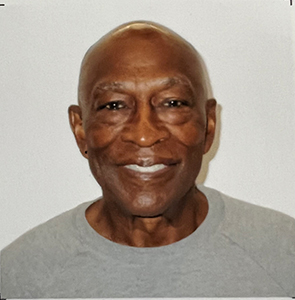Army Vietnam Sallis, MS Flight date: 06/14/23
By Wendy L Ellis, Honor Flight Chicago Veteran Interview Volunteer
Vietnam wasn’t really on his mind when Willie Floyd Smith decided to join the Army in 1966. Fresh out of high school in Laurel, Mississippi, his choices were limited. As the oldest of 7 siblings, his parents couldn’t afford to send him to college. In fact, the rest of the family had moved north to Chicago for better work, but going north to work in a factory didn’t appeal to Willie. The Army was his next best choice.
“A friend of mine that I went to high school with, we both decided to join together,” says Willie. “In those days the military had what was called a buddy basic plan. You would join together and go through all your training together. Then they would try to put you with the same unit.” The Army was true to its word and put both of them into jump school together, and then assigned them both to the 173rd Airborne.
It was 1966, and just a few months before, the 173rd Airborne Brigade had become the first US Army unit sent to South Vietnam. Willie was shipped to Vietnam in March of 1967 and it was only then that the growing conflict so far overseas became reality for Willie. “I saw what it was like there and saw all of the death and everything. So, it kind of changed my attitude,” says Willie. “It made me a better person. It made me stronger. And it made me understand that survival is the most important thing.”
Willie’s days were spent as a mortar man, assigned to support the 17th cavalry. Stationed in the Central Highlands, Willie and his unit would head out on recon missions to the front lines fully loaded. The 81 MM mortars and assorted attachments would tear down into 5 or 6 parts to make it easier to carry into combat. Everybody toted the ammo as well since it was never clear how long the unit would be out on the front lines. The platoon was always on the lookout for a VC ambush. “It happened a lot,” says Willie.” If you get in a firefight, you just have to fight. Sometimes we didn’t even have time to set up the mortar.”
Because they were in a cavalry unit, the platoon also had access to jeeps when they needed them. “We didn’t ride horses, but we had jeeps. But we walked a lot and if we had to go in and do recon, we had to leave the jeeps behind.” says Willie. “It wasn’t always a piece of cake. People see your ride and they think you got it easy. Until you hit a landmine.”

Despite constant fears of ambush and landmines, it is the battle at Hill 875 that stands out in Willie’s mind the most. For over 3 weeks, the North Vietnamese and the Americans battled for control of this hill in the Central Highlands. The 173rd airborne had three companies in combat, and Willie’s crew was sent in for support. It became their task to go out and retrieve the dead and wounded from the hill.
“We had to do body counts of the VC and do body counts about our own personnel,” says Willie. “It’s a horrible sight. You’re finding body parts of Americans here and there. I tell people, you can’t name a form of a dead body that I haven’t seen.” All of this at the age of 20. When the battle for Hill 875 was over, the 173rd airborne had lost one fifth of its fighting force to death or wounded. “I still have nightmares every night.”
When Willie returned to the states four months later, he headed to Chicago where his family was, but his return was on the heels of the assassination of Martin Luther King, Jr. and things weren’t good. There was rioting in the city and the National Guard had been called out. For Willie, it was too much to deal with.
“When you go into combat, it’s something you just don’t say I’m done with that,” says Willie. “You don’t want to be patronized by somebody who’s never been in combat. And then you have to come home and be bothered with something like that. So, I just told myself. Rather than deal with this, I’d rather go back. “
To get away from the turmoil at home, Willie went back to Vietnam for another tour of duty. He returned to his old unit where he was put in charge of the mortar section. Things were calmer in Chicago when he returned the second time in 1969, and he began a 22-year career as a bus driver for the CTA, moving to warehouse work for another six years to get out of the snow and ice. He also takes great pride in his 37 years as an official for the Illinois High School Association’s girl’s fast pitch softball including five state finals. Willie has four daughters and two grandchildren who visit him often in his hometown of Laurel, Mississippi, where he moved three years ago from Bellwood, Illinois.
His trip on Honor Flight Chicago will be his first chance to see the real Vietnam Wall in person and he is looking forward to it, no matter what the weather might be. “We fought in combat in all kinds of weather, so that isn’t going to be an issue, “says Willie. “In fact, it bothers me to see a man with an umbrella.”
May your Honor Flight day be nothing but sunshine. Thank. You for your service, Willie Smith.


